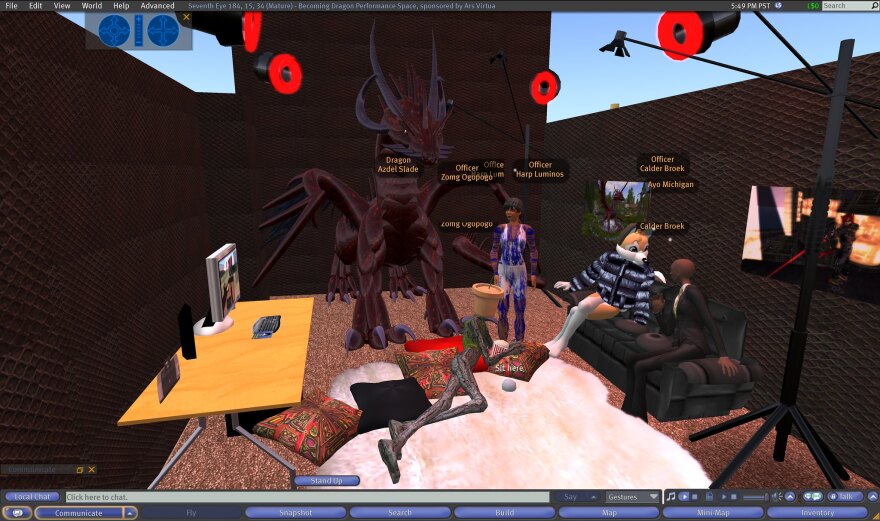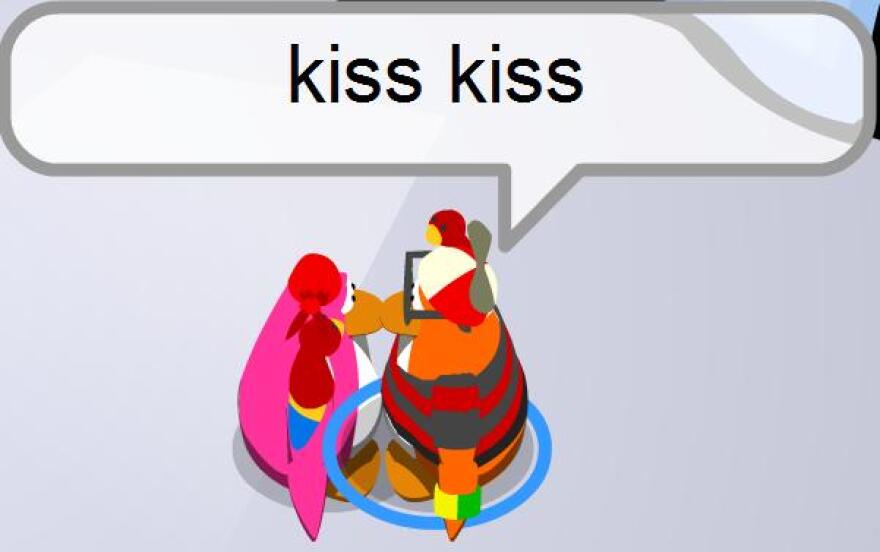2.5 billion people around the world play video games. From Words With Friends to League of Legends, games are revolutionizing how we relate to one another. In many ways, gaming has become its own culture. But it might not be exactly what you'd expect. Most gamers play on their cellphones and nearly half are women. Most people playing video games are doing it with other people. And in response to hate-speech online and IRL, marginalized gamers are creating sanctuaries. On this edition of our Embodied series, host Anita Rao explores what gamers can teach us about socializing.
Guests:
- August Causey, founder and owner of the Spectrum server on Discord — a social network for gaming communities:
Gaming is a common ground that we all can meet on. People can forge connections that can change the way they see the world. Games alone can change perspectives, but gaming with others can help you understand a person, culture or religion.
- Bijan Stephen, livestreaming reporter at The Verge and music critic at The Nation:
[Games] are a place that you can develop empathy for other people. It's also a place you can imagine a better world. You get to decide the norms of your communities. You get to decide what things can look like and what happens. And I think that's beautiful.
- Tess Tanenbaum, assistant professor in the department of informatics at the University of California, Irvine and co-editor of "Nonverbal Communication in Virtual Worlds" (ETC-Press/2014):
Gaming gives us a chance to transcend a lot of the limitations we live under. I think we need art and expression and play, because I think that feeds a human need that is increasingly being made secondary by the structure of our society.
- Adriana De Souze e Silva, professor in the department of communication at North Carolina State University and co-editor of "Hybrid Play: Crossing Boundaries in Game Design, Player Identities And Play Spaces" (Routledge/2020):
We are playful animals ... And I think sometimes we lose that connection to play as we grow up. People get too much into their serious lives and start creating boundaries between play time and serious lives. Location-based games have the ability to merge serious life with playful activities. ...You're constantly going in and out of that magic circle.

After witnessing the police killing of a queer leader at Georgia Tech, August Causey struggled to find a support structure in the South. “Being this kind of introverted, weird, queer kid, doing what I did best, I turned to the Internet and decided to create a community and try to create my own safe space and find people who also needed that type of retreat from some of the harsh realities of real life,” Causey told host Anita Rao.
They started Spectrum — a community on the gaming social network Discord — that now hosts thousands of LGBTQ+ young people playing video games and chatting. The closed community requires intensive moderating, run by a core group of volunteers, but the atmosphere within is full of joy and unconditional support.
Many of us use games to inhabit the identities we want in the world before we find that opportunity to do so in our lives.
“Everyone is welcome and open to the idea of non-binary people existing,” Causey says, which is a contrast to the daily erasure some queer folks experience. “Sometimes IRL there are hateful people and people who say really hurtful things and go out of their way to cause harm towards the queer community. In a queer-exclusive space like Spectrum that really doesn't exist.”
Causey’s intentional design and maintenance of a queer-only space provides a glimmer of hope for the largely failed ideals of the early Internet. However, scholar and game designer Tess Tanenbaum bemoans how much of the Internet and gaming world has reshackled itself to antiquated limitations of self-expression. She shared how, when given the opportunity to customize an avatar, many players choose attributes similar to their own, or they replicate standard ideals. Trans gamers, on the other hand, have long used virtual bodies more creatively.

“Many of us use games to inhabit the identities we want in the world before we find that opportunity to do so in our lives.” Tanenbaum says.
Game design can encourage players to opt out of oppressive standards by randomizing attributes, allowing for gender customization along a spectrum and allowing for non-human or post-human characters. Community may coalesce from mutual appreciation of highly personal expressions of identity. In the same way, false representation may corrupt a relationship.
We are actually bringing the Internet into our everyday spaces.
And what happens when the game world and reality start to blur? In some games, there’s no option to move and communicate as an avatar. Adriana de Souza e Silva studies games like Pokémon Go, which require players to physically move by game-ifying the real world. Screen and non-screen communication are increasingly interwoven in all aspects of life, and gameplay maps out the novel social landscape. Even non-gamers are familiar with the uncertain standards of the virtual-physical overlap — how about texting at the dinner table?

De Souza e Silva was fascinated by early mobile games that encouraged play in hybrid space. “There was all this rhetoric about people living in virtual worlds, that all the shopping would be online and our lives would be online and we would not go outside of the house anymore,” de Souza e Silva says. But she sees the opposite happening: “We're actually bringing the Internet into our everyday spaces.”
Her research in Rio de Janeiro, Nairobi and Raleigh shows that online gameplay is transforming idle commutes and down-time into creative play. She recounts a story of a young woman in Rio who felt unsafe on public transportation until finding a group of Pokémon Go travel-buddies.
Tanenbaum, however, expresses concerns about the effects of urban gameplay. “What if, when I'm walking around in the world, I see something very different from what you see?” Tanenbaum asks. “What does that mean for our shared social infrastructure?”
Videogames can also expose broader issues of inequality and oppression. Trying to chase down Pokémon in Raleigh, the long distances between in-game attractions bring to light urban sprawl and the lack of public spaces. The defenses needed to maintain Spectrum as a safe place make apparent the proliferation of hate speech. And close-minded gender norms force trans gamers to turn to avatars for self-expression. So when will the freedom to play happen IRL?


